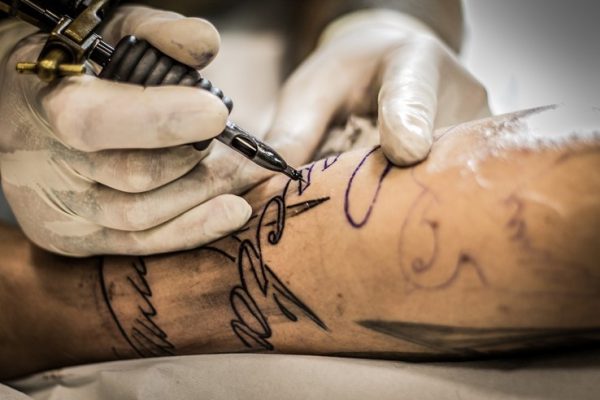
Safe Tattoo: Things You Should Know Before You Ink
Tattoos are one of the most desired body arts and the stigma of tattoos is widespread though out the world. For many people it is a way of self-expression. Getting tattoos is attractive. However, tattoos can come with some health risks. According to American Academy of Dermatology (AAD) most people will not notice severe symptoms. Simple symptoms that a person could get because of permanent inking could be swelling, soreness and redness. Some might develop severe infections and allergic reactions sooner or later after getting a tattoo. There are few reports of people encountering health issues after getting tattooed. If there is pain and if pain worsens, if there is severe rash, blisters, fever, chills, pus formation coming out of the tattoo contact your physician immediately.
If you are planning to get a tattoo, go for a safe tattoo. What is a safe tattoo?
A safe tattoo is one that is done with proper hygiene practices and by a skilled, professional tattoo artist. When getting a tattoo, it’s essential to prioritize your health and safety to avoid potential risks and complications. Here are some key factors to consider for a safe tattoo:
- Choose a reputable tattoo studio: Select a reputable tattoo studio with a clean and sterile environment. Look for reviews and recommendations from others who have had positive experiences at the studio.
- Licensed and experienced artist: Ensure that the tattoo artist is licensed and has ample experience in tattooing. A skilled artist will be knowledgeable about proper techniques and hygiene practices.
- Sterilization and sanitation: Make sure the tattoo studio follows strict sterilization and sanitation protocols. The artist should follow the instructions similar to hospitals – use single-use, disposable needles, and other equipment to prevent the risk of infections.
- Health screening: A professional tattoo artist should inquire about your health history and screen for any conditions that may interfere with the tattooing process or pose risks.
- Ink quality: The ink used for the tattoo should be of high-quality and approved for use on the skin. Cheap or substandard inks may cause adverse reactions. Tattoo inks are unregulated in many countries. Like in the USA it is considered as a cosmetic and when something goes wrong after using the ink authorities step in. Tainted ink can lead to bacterial infections, skin diseases and illnesses. – Talk to tattoo artist about the source of ink, expiration date and note down lot number. No harm in understanding the ink ingredients.
- Choose your design carefully: You need to be sure about the design (art) that you want to go on your body. Sometimes complicated art might not come out well and you might regret getting one.
- Allergies and sensitivities: Inform the tattoo artist about any known allergies or sensitivities you have to certain substances, especially if you’ve had previous reactions to tattoo inks.
- Aftercare instructions: After getting a tattoo, follow the aftercare instructions provided by the artist carefully. Proper aftercare is crucial for ensuring the tattoo heals well and reduces the risk of infection.
- Avoid alcohol and drugs: Avoid alcohol or recreational drugs before getting a tattoo, as they can thin the blood and lead to excessive bleeding during the process.
- Talk to your physician: If you have any underlying health conditions or concerns about getting a tattoo, consult with your doctor beforehand.
- Trust your instincts: If something doesn’t feel right about the tattoo studio or the artist, trust your instincts and consider finding a different, more reputable option.
Tattoo removal: In case you don’t want that “permanent tattoo” and start regretting of getting one, there are several techniques that professionals use to remove the tattoo. Remember – there is no guarantee that the permanent ink that has become part of you will not totally go away from any of these techniques. Getting a tattoo is a permanent decision, so take your time in researching the location, artist, and design. Prioritize your safety and health throughout the process to ensure a positive and safe tattooing experience. Before making the decision to get a tattoo, think about it with your close ones and then proceed with your decision.
Image credit: Image by Felix from Pixabay (cc by 0)
References:
https://www.consumerreports.org/
First Tattoo Tips: Advice for Beginners From Tattoo Artists | Allure
Author: Sumana Rao | Posted on: August 8, 2023
« Status of Extraction of Potential Drugs from the Ocean AI Technology and Brain Implant Helps Woman with Stroke to Speak After 18 years »






















Write a comment